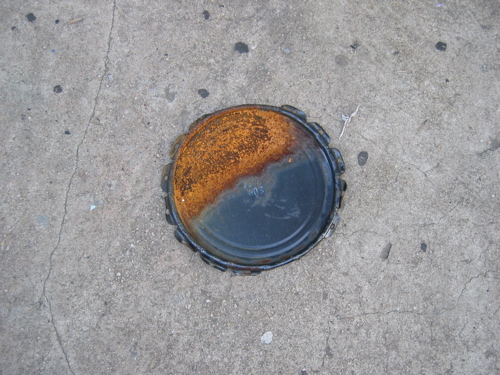January 27, 2006
ONE LITTLE PIECE

ANGRY FRIEND: What do you think of this whole James Frey flap?
ME: I think dude made a lot of stuff up.
ANGRY FRIEND: I feel unsympathetic toward him and not surprised by the behavior of the publishing industry. He lied. No one knew, or did the things they needed to do to know, and now they can throw up their hands and feign distress as the book sells better and better. And Oprah? I mean, she's trying to save face, or shear off someone else's face, but what is it other than showbiz? She's not stupid. She had her hair done special because it's a show about integrity. I mean, it's fine. Fiction shouldn't be confused with memoir. Granted. But this is the part of the culture I hate the most -- the exhibitionist behavior, followed by the apology, followed by the reward. Dignity conspicuously absent. This is also why I hate memoirs, generally. Why was it so important for him to call his book a memoir? Because people care (or think they care) about "real" stories more than fictional ones. If it was a novel it might just drift into oblivion. so that's wrong, for starters. It's a stupid way to think of the world, that "reality" deserves such privilege, especially when it's rarely real. There is something wrong with the culture when that honor is never rewarded, and what's rewarded instead is this jackatoon lie-and-confess cycle. Noise is rewarded, even if it's stupid noise. That has an indirect effect on all of us and also sometimes a direct effect. It's why sometimes people would rather read a memoir, or Us magazine, than a novel or a poem. It seems like reality, and it connects them to what they imagine is real human experience at a time when lots of other things (media explosion, tv, internet, shrinkage of visual arts, perversion of spirituality for political aims) are disconnecting them from that experience. Obviously people are hungry for "reality." Why else would there be so much reality TV? Such a huge boom in the memoir business? Did books like "million little pieces," "lovely bones," "running with scissors," "prozac nation" make the same size dents forty years ago? Twenty? I think people are feeling overtaken by unreality so they grasp blindly at anything labelled "real." That doesn't work for me. It makes me want to grab a baseball bat and smash this whole story into a billion littler pieces.
ME: I don't feel the same sense of outrage, maybe because there is an ickiness to this story that will haunt Frey long after the money's run out—call it "The O.J. Effect"—and that will do more than any outrage I work up. I am more interested in the public need for a thing—a text, a song—to be tied to a back story, a credential of some kind, that then gives people license to admit (if only to themselves) that they are feeling what they've already felt, but for some "good" reason. For example, when people say "fake" or "pre-fab," what they really mean is "bad." "Pre-fab" has the same relationship to "fab" as "flammable" does to "inflammable." What isn't fabricated? What effect is unreal? The Frey flap is about the wrangling people need to do to reach the emotional goodies they want without feeling like frauds, even though they can't technically be frauds. Frey has a consciousness he wants to describe. Frey's book—which I have not read—will resonate or not, and will resemble someone else's consciousness. The discussion is like gangsta rap's constant I.D. checking; a larger conversation of the work has been reduced to checkpoints and passport inspections. The thinking goes, that if we can track down the actual origin of someone's story, we will be holding something solid. But, in the meantime, we go on having reactions and relations to the work, no matter who is lying about what. Time does not stop.
Posted by Sasha at January 27, 2006 05:16 PM | TrackBack